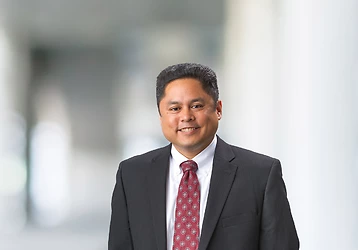Impact and Status of Executive Order Attempt to Redefine Definition of U.S. Birthright Citizenship
One method of obtaining U.S. citizenship is to be born in the United States. According to the 14th Amendment to the U.S. Constitution, “All persons born or naturalized in the United States, and subject to the jurisdiction thereof, are citizens of the United States and of the state wherein they reside.”1 This principle, also more commonly known as “Birthright Citizenship,” was upheld by the U.S. Supreme Court in 1898.2
On January 20, 2025, President Trump issued an Executive Order (“Order”) offering a new interpretation of Birthright Citizenship in the U.S.3 In this Order, the President provided that the U.S. government would not issue any document recognizing U.S. citizenship of children born under the following circumstances while in the U.S.:
- when that person’s mother was unlawfully present in the United States and the person’s father was not a United States citizen or lawful permanent resident at the time of said person’s birth, or
- when that person’s mother’s presence in the United States was lawful but temporary, and the person’s father was not a United States citizen or lawful permanent resident at the time of said person’s birth.
The Order was to take effect on February 20, 2025, 30 days from the date of issuance.
Twenty-two states, including the State of Michigan, the District of Columbia, and the City of San Francisco, filed a pair of lawsuits in the U.S. Federal Courts of Boston, Massachusetts and Seattle, Washington asserting that the Order violates the U.S. Constitution. The Federal Judge presiding over the Seattle, Washington matter; U.S. District Court Judge John Coughenour, who was appointed by President Reagan; granted a request for a Temporary Restraining Order pausing the Order’s enforcement allowing the Court to consider arguments surrounding the relevant issues.
Should the Order take effect, the U.S. government would not issue passports or other related documentation acknowledging the U.S. citizenship of children born in the U.S. to parents of undocumented and lawful but temporary nonimmigrant classifications such as F-1 student, H-1B specialty occupation, L-1 intracompany transferee, or O-1 extraordinary ability workers.
Persons with an interest in this issue should seek the counsel of a Butzel Long immigration attorney, or at the very least, apply for U.S. passports for children that are born under the circumstances outlined in the Order as soon as possible should the stay of enforcement under the Order is lifted.
Please feel free to contact the author of this client alert or your Butzel attorney for more information.
Reginald Pacis
313.983.6929
pacis@butzel.com
[1] U.S. Const. amend. XIV, §1
[2] United States v. Wong Kim Ark, 169 U.S. 649 (1898)
[3] Protecting The Meaning and Value of American Citizenship; 90 FR 8449, 1/29/25











